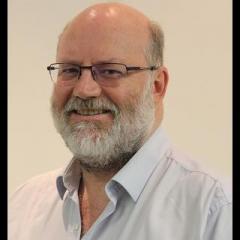
Speaker: Shane Hastie
Director of Agile Learning Programs @ICAgile
Over the last 30+ years Shane has been a practitioner and leader of developers, testers, trainers, project managers and business analysts, helping teams to deliver results that align with overall business objectives. He has worked with large and small organisations, from individual teams to large transformations all around the world. He draws on over 30 years of practical experience across all levels of Information Technology and software intensive product development. Shane was a director of the Agile Alliance from 2011 to 2016 and is the founding Chair of Agile Alliance New Zealand. “I firmly believe that humanistic way of working and the agile mindset are desperately needed in organisations all around the globe today. Taking agile values and principles beyond software is important and making sure they are properly embedded is absolutely crucial for success – we’re in an industry that touches every aspect of people’s lives and massively influences society as a whole and I want to be a part of making sure that industry is both ethical and sustainable.”
Find Shane Hastie at:
Workshop
Being Agile in a Remote Team
In this experiential and interactive workshop, Shane discusses his experience working in a distributed, virtual organization which is founded on an Agile Mindset. The workshop covers the challenges of maintaining agility when remote, the ways the ICAgile team have consciously designed their team and organization culture. It also provides actionable advice based on real experience on how to maintain collaboration, teamwork and live the agile values in a remote-only organization.
ICAgile is a global, virtual organisation working with partners across over 100 countries spanning almost every timezone. There is no single corporate office and the ICAgile team is spread across seven locations in three countries. We have managed to build a strong collaborative culture and a truly safe working environment focused on outcomes rather than activities, holding each other to account and being really effective and productive while having a joyful workplace.
Workshop
Starting Out Right - Building the Right Product
This whole-day workshop explores what is needed to set up product development for success.
All too often we fall into what has been called "the build trap" - the desire to get working quickly means teams are off to the races without actually knowing which horse they're riding on and where it it headed.
This workshop presents a variety of tools and techniques which are available to rapidly align on business value, intended outcomes and coming up with a roadmap for successful product development. Over the day the participants will gain hands-on experience using the tools on real-world scenarios.
Topics covered include:
- Understanding the product goals, how they align with organisation objectives and measurable outcomes
- Crafting the product hypothesis and designing experiments to validate or invalidate it
- Trade-offs and success sliders;
- Value and time, urgency and priority
- Anthropology and personas
- Roadmaps, story maps and backlogs
- Knowing when to stop
SESSION + Live Q&A
Mini workshop Deliberately Designing Collaborative Culture
Collaborative organisational culture doesn't just happen, it needs conscious and deliberate design and careful nurturing. In this workshop participants will explore what a collaborative organisation culture is, why it matters and how to deliberately design culture.
Culture is "the way we do things here" rather than anything written or prescribed, so understanding how leadership attitudes and behaviors influence and create organisation culture is vitally important to successfully establishing an environment where people are able to bring their whole selves to work, are engaged and positively contribute to the organisation's success. This session is presented as series of facilitated conversations drawing out the key aspects of organisation culture and showing how it is influenced by a wide variety of factors including structure, geography, promotion policies and practices, the conversations leaders have, what gets rewarded, ignored or punished, relationships and friendships and a wide variety of other factors.
By the end of the session, the participants will be able to identify areas they wish to address in their own organisations and will have some resources to help them in their culture design.

